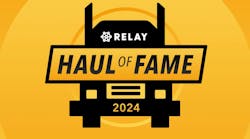Politics is often a blame game, and with Congress's inability to pass the Highway Reauthorization bill, there is plenty to go around. Instead of passing a five-year $375 billion spending bill — Transportation Equity Act for the 21st Century (TEA-21) — that would build and repair highways, bridges, and fund mass transit, Congress wrote a lackluster five-month extension of the previous law (ISTEA), which expired September 30. President Bush signed the bill so ongoing highway construction would not come to a dead halt.
Lawmakers on both sides are angry about how this turned out because they could have mimicked what worked before, but ideology and, some say, greed got in the way. “This was the most unnecessary situation I've seen in a long time,” says one Congressional staffer. “It could have been worked out.”
Those who lived through the last authorization recall that the bill passed because coalitions were built and compromises made. For example, instead of all the money going for highways, some was earmarked for environmental-friendly projects such as “rails to trails,” pedestrian walkways and mass transit. With environmentalists and highway advocates usually on opposite sides of the budget issue, they found a middle ground, albeit grudgingly, that allowed the bill to pass with each camp feeling it had won a victory.
This time, however, the environmentalists were not only outspent by their opponents but found their pet projects cut down. They were especially disturbed by loosening of Clean Air rules covering highway construction projects. “The other side wanted everything,” says one lobbyist for an environmental group. “So they ended up with nothing.”
According to Rep. Earl Blumenauer (D-OR), “The essence of the original authorization success story is that it brought everybody to the table, guaranteeing them a piece of the transportation pie so that people became allies who heretofore had been adversaries.”
Unfortunately, not everyone got a piece of the pie this time around.
Because a coalition was not formed, an increase in gas taxes of 4¢-5¢/gal., which many transportation experts believe is necessary to fund the infrastructure, became the immovable object. The Bush Administration strongly opposes any new taxes as part of its overall economic policy, as does the American Trucking Assns., which sees gas taxes as an additional burden for its members.
While most Republicans stuck to their no-tax-increase guns, many democrats saw the increase as the only way to fund highway construction in an era of ballooning federal deficits. Not enough lawmakers from both sides were able to move to a middle position.
There is more at stake here than well-maintained roads and bridges. According to Alaska Republican Don Young, chairman of the House Transportation and Infrastructure Committee, for every $1 billion spent by the highway act, 47,500 jobs are created or sustained. In addition, because more than 64% of the nation's freight moves on highways, an annual value to the economy of more than $5 trillion is realized for every $1 billion spent.
When the current stopgap measure runs out in the spring, bipartisan fever will become hotter as the presidential election season begins. Compromise may be even more difficult to achieve, and truckers will face more traffic congestion and unsafe highways.


